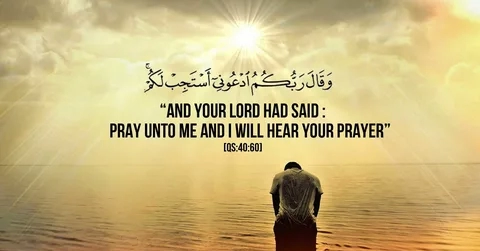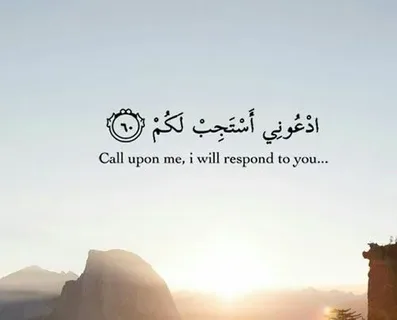Hope is a powerful force that can uplift and inspire. It’s the light at the end of the tunnel, the driving force that keeps us moving forward even when the odds seem insurmountable. In Islam, hope holds a special place, interwoven with faith and trust in Allah. in This article on Arabian Tongue website we will explores the multifaceted nature of hope in Islam, drawing from the Quran, Hadith, and the lives of the prophets.
The Concept of Hope in Islam

In the Quran, hope is emphasized as a central theme. Verses such as “And whoever fears Allah – He will make for him a way out and will provide for him from where he does not expect” (Quran 65:2-3) highlight the importance of maintaining hope and trust in Allah’s plans. Hope in Islam is not just wishful thinking; it is a firm belief in Allah’s mercy and benevolence.
Hope vs. Despair in Islam
Despair is considered a sin in Islam, as it signifies a lack of trust in Allah’s power and mercy. The Quran states, “Indeed, no one despairs of relief from Allah except the disbelieving people” (Quran 12:87). Therefore, maintaining hope is not only encouraged but also seen as a manifestation of true faith.
Hope in the Names of Allah
In Islamic tradition, the 99 Names of Allah, also known as Asma-ul-Husna, are attributes through which Muslims understand and relate to God. Each name signifies a distinct characteristic of Allah, providing believers with a comprehensive understanding of His essence
Ar-Rahman (The Most Merciful)
Ar-Rahman, one of the most frequently mentioned names of Allah, signifies His boundless mercy. Believers are encouraged to have hope in Allah’s mercy, as it is limitless and available to all who seek it sincerely.
Al-Ghaffar (The All-Forgiving)
Al-Ghaffar highlights Allah’s attribute of forgiveness. This name assures believers that no matter how grave their sins, if they sincerely repent, Allah’s forgiveness is always within reach.
Al-Fattah (The Opener)
Al-Fattah, meaning The Opener, reassures believers that Allah opens doors of opportunity and relief from difficulties. This name encourages hope that Allah will provide solutions and ease in times of hardship.
Prophetic Teachings on Hope

Prophet Muhammad (peace be upon him) emphasized hope and optimism. He said, “Whoever believes in Allah and the Last Day, let him speak good or remain silent” (Sahih Bukhari). This hadith encourages maintaining a positive outlook and spreading hope through good words.
Stories of Prophets as Models of Hope
timeline of the prophets in islam are epitomes of hope. The story of Prophet Yusuf (Joseph) and his unwavering hope in Allah’s plan despite being thrown into a well by his brothers and later imprisoned is a profound lesson in maintaining hope through trials.
Hope and Faith (Iman)
Hope and faith (Iman) are deeply interconnected. Faith in Allah naturally cultivates hope, as believers trust in His wisdom and mercy. The stronger the faith, the more resilient the hope.
Strengthening Faith Through Hope
Believers can strengthen their faith by actively nurturing hope. Regular worship, remembrance of Allah, and reflecting on His blessings help reinforce this bond, making faith and hope mutually reinforcing.
Hope in Daily Worship and Practices
Salah, the daily prayer, is a profound source of hope. It provides a structured opportunity to connect with Allah, seek His guidance, and find solace. Each prayer is a reminder of Allah’s presence and mercy.
Dua (Supplication) and Its Power
types of Dua in islam is a direct line of communication with Allah. Through supplication, believers express their hopes, fears, and desires, trusting that Allah listens and responds in the best manner.
Fasting and Renewed Hope
Fasting, especially during Ramadan, rejuvenates hope. It’s a time of spiritual reflection and heightened devotion, fostering a renewed sense of hope and reliance on Allah.
Hope in Facing Challenges and Hardships
Islamic Quotes Patience (Sabr) is a key virtue in Islam, closely tied to hope. During challenging times, patience is the vessel that carries hope, allowing believers to endure hardships with the trust that relief will come from Allah.
Overcoming Trials with Hope
Islam teaches that every trial has a purpose and is accompanied by ease. The Quran states, “For indeed, with hardship [will be] ease” (Quran 94:6). This assurance instills hope that difficulties are temporary and part of Allah’s divine plan.
Hope for Forgiveness and Mercy
Tawbah, or repentance, is a powerful act of returning to Allah. It’s grounded in the hope for forgiveness. Islam teaches that sincere repentance is always accepted, reinforcing the hope for a fresh start.
Seeking Allah’s Mercy
Believers are encouraged to constantly seek Allah’s mercy, which is vast and encompassing. Hope in His mercy is a cornerstone of Islamic faith, reminding believers that they are never beyond redemption.
Hope for the Afterlife
Hope in the afterlife is a fundamental aspect of Islamic belief. The promise of paradise for the faithful instills hope and motivates righteous living.
Paradise (Jannah) as the Ultimate Hope
Jannah, or paradise, represents the ultimate hope for Muslims. It’s the eternal reward for a life of faith and good deeds, embodying the culmination of all hopes and aspirations in Islam.
Hope in Islamic History
Islamic history is replete with leaders who embodied hope. Figures like Salahuddin Al-Ayyubi (Saladin) and his unwavering hope for the liberation of Jerusalem inspire Muslims to this day.
Inspiring Stories from Islamic History
Stories from Islamic history, such as the perseverance of early Muslims during times of persecution, highlight the enduring power of hope in maintaining faith and achieving greatness.
FAQs
How does Islam define hope?
Islam defines hope as a firm belief in Allah’s mercy, guidance, and benevolence, which motivates and sustains believers through life’s challenges.
What are some Quranic verses about hope?
Verses like Quran 65:2-3 and Quran 12:87 emphasize maintaining hope and trust in Allah’s plans, highlighting His mercy and the assurance of relief.
How can Muslims maintain hope during difficult times?
Muslims can maintain hope through regular prayer, supplication, patience, and by reflecting on the lives of the prophets and the promises of Allah.
What role does community play in fostering hope in Islam?
Islamic communities provide support, encouragement, and a sense of belonging, all of which are crucial in fostering and maintaining hope.
How can one seek hope through prayer and worship?
Prayer and worship offer direct communication with Allah, providing comfort and reassurance. Engaging in these practices regularly helps reinforce hope and trust in Allah’s mercy.
Conclusion
Hope in Islam is a profound and multifaceted concept, deeply intertwined with faith and trust in Allah. It permeates every aspect of a believer’s life, providing strength, solace, and motivation. By understanding and nurturing this hope, Muslims can navigate life’s challenges with resilience and optimism, always looking towards the mercy and guidance of Allah.


